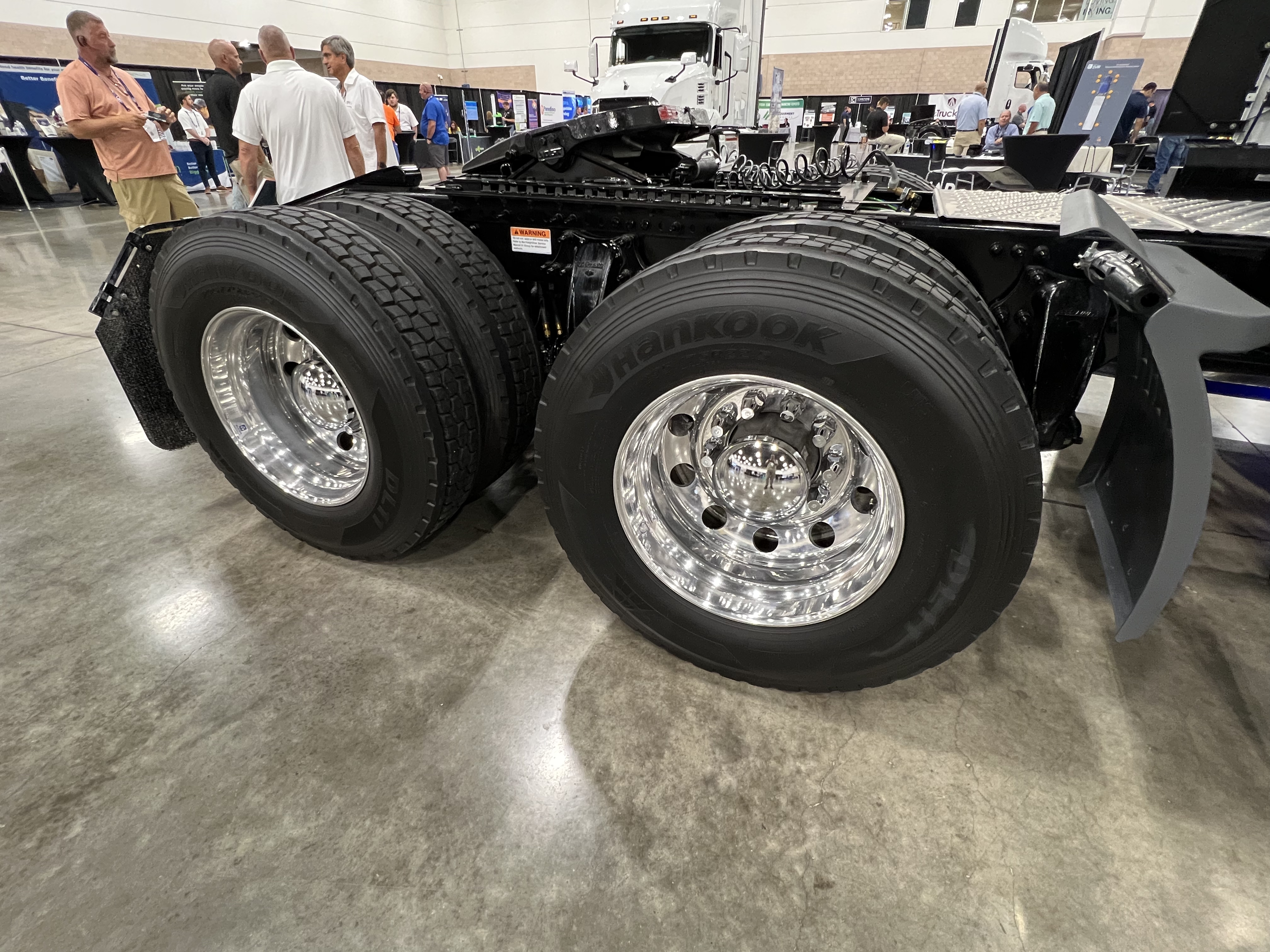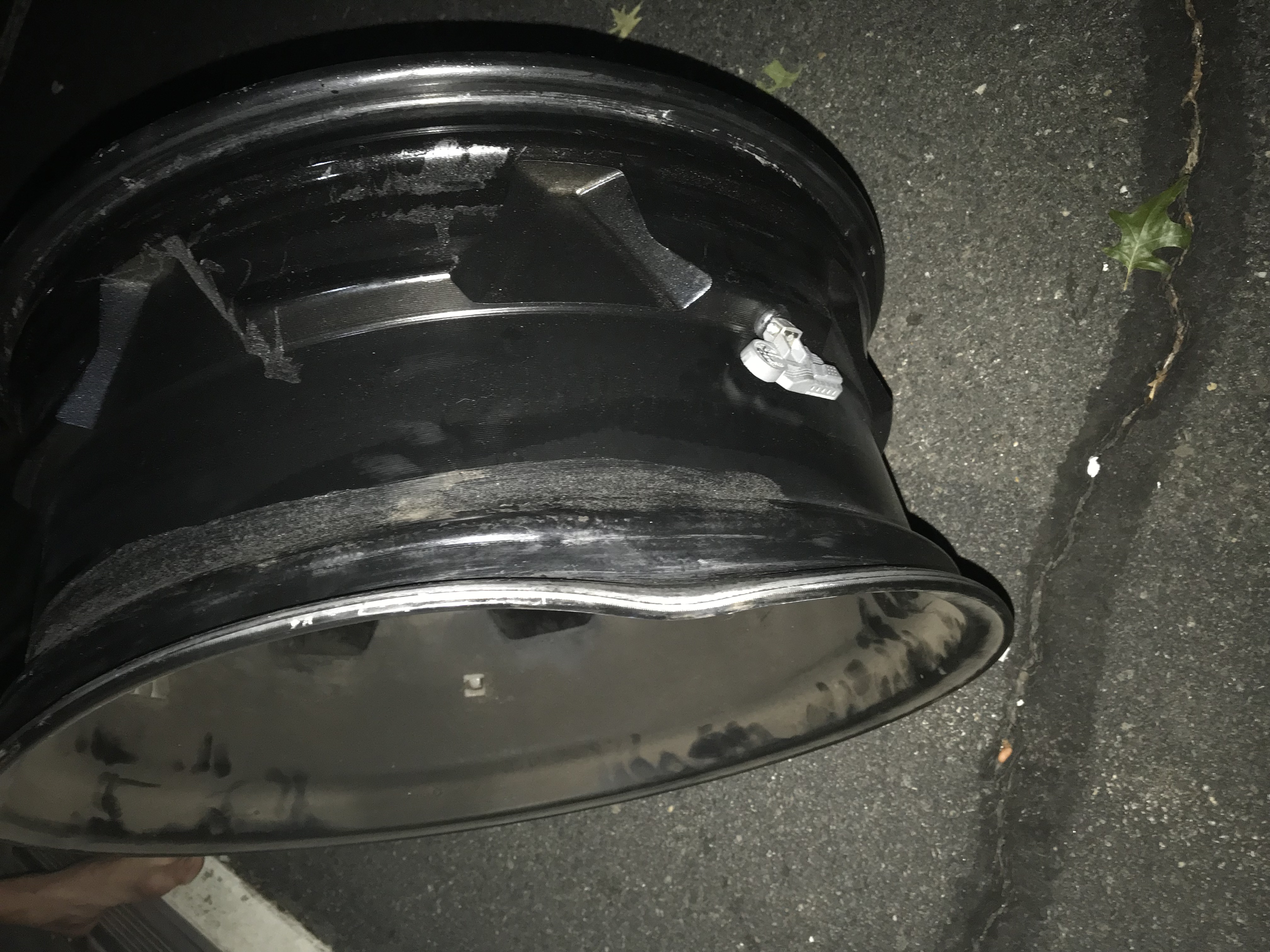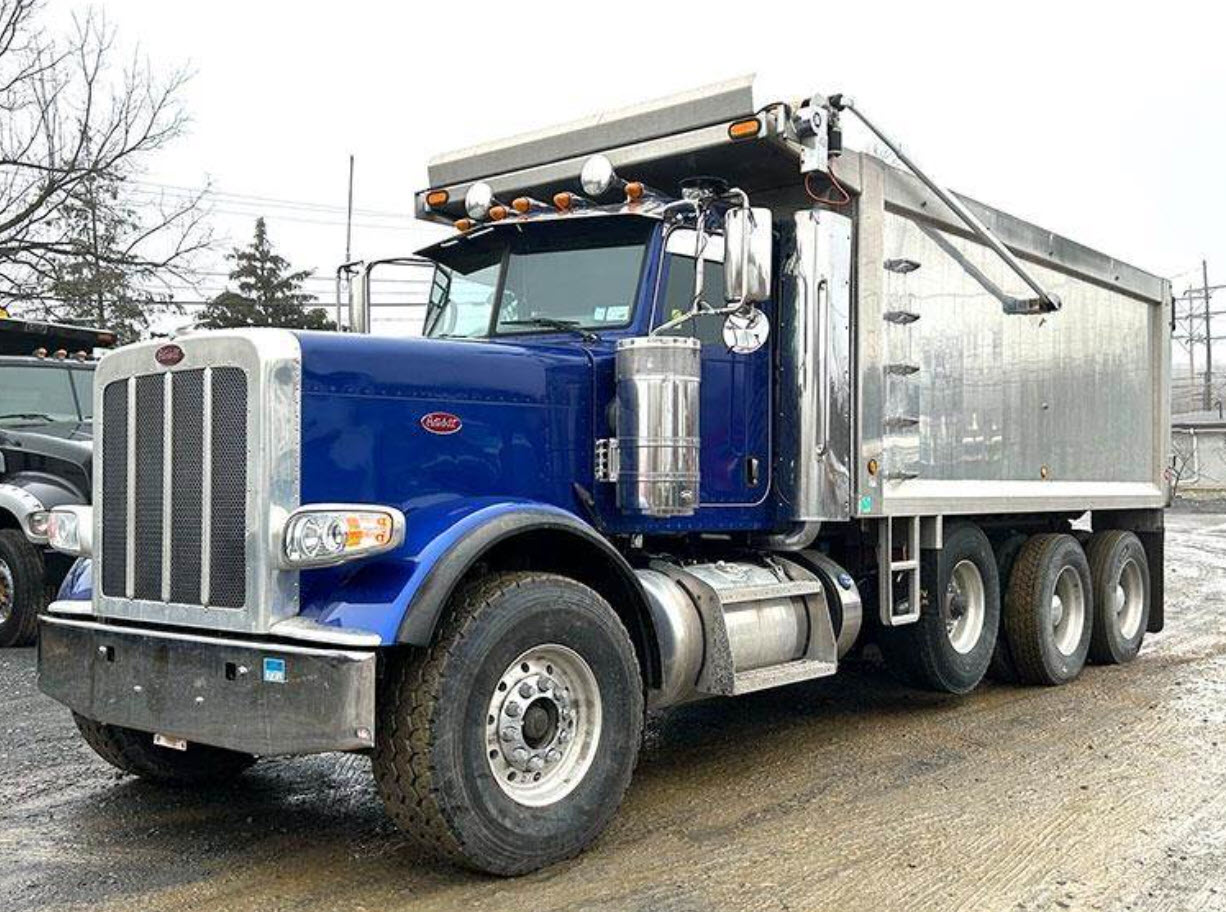As fleet managers and truck operators, ensuring the safety, longevity, and efficiency of tires is crucial. One of the most effective ways to achieve these goals is through nitrogen inflation. Unlike regular air, nitrogen offers a range of benefits that directly contribute to fewer tire failures. In this article, we will delve into the science behind nitrogen inflation and why it is becoming the preferred choice for many fleets.
When it comes to tire performance, the gas used for inflation plays a critical role. Nitrogen molecules are larger and less permeable than oxygen molecules, making them less likely to escape through the tire walls. This results in more consistent tire pressure over time, which is essential for optimal tire performance and safety.
Nitrogen inflation also reduces the oxidation of the tire’s rubber components. Oxygen can cause the rubber to deteriorate faster, leading to a higher risk of blowouts and other failures. By using nitrogen, you can extend the life of your tires and reduce maintenance costs.
If you’re looking to improve the safety and efficiency of your fleet, consider switching to nitrogen inflation. Our team at Fuel & Tire Saver Systems Company, LLC is here to help you make the transition. Request Fleet Pricing, contact our office at (703) 429-0382, or email Mike.LoPresti@fuelandtiresaver.com to learn more about our services.
Table of Contents
ToggleBenefits of Nitrogen Over Air

One of the primary reasons why tires inflated with nitrogen experience fewer physical failures than others is due to the unique properties of nitrogen gas. Unlike regular air, which is composed of approximately 78% nitrogen, 21% oxygen, and small amounts of other gases, pure nitrogen offers specific advantages that contribute to tire longevity and performance.
First and foremost, nitrogen gas is less prone to temperature fluctuations compared to oxygen. This means that nitrogen-inflated tires maintain more consistent pressure regardless of external temperature changes. Stable tire pressure leads to better fuel efficiency, reduced tire wear, and enhanced safety.
Another significant benefit is that nitrogen molecules are larger than oxygen molecules, making them less likely to seep through the rubber of the tire. This reduced permeability allows nitrogen-inflated tires to retain their pressure for a longer period, reducing the need for frequent top-ups and maintenance. In contrast, tires inflated with regular air tend to lose pressure more quickly, which can lead to under-inflation—a common cause of tire failures.
Nitrogen inflation also helps in minimizing the oxidation and moisture inside the tire. Oxygen and moisture can accelerate the degradation of the rubber and steel components within the tire, leading to premature aging and a higher risk of blowouts. By using nitrogen, you can significantly slow down this process, thereby extending the lifespan of your tires.
Overall, the benefits of nitrogen over air are clear: more consistent tire pressure, reduced risk of oxidation and moisture-related damage, and ultimately, fewer physical tire failures. For fleet managers, these advantages translate into cost savings, improved vehicle performance, and enhanced safety on the road.
How Nitrogen Reduces Tire Failures

The mechanism through which nitrogen reduces tire failures is rooted in its chemical and physical properties. Understanding this can help you appreciate why tires inflated with nitrogen experience fewer physical failures than others.
One of the key factors is the reduction in oxidation. When tires are inflated with regular air, the oxygen present inside can react with the rubber and steel components, leading to oxidation. This process weakens the structural integrity of the tire over time, making it more susceptible to failures such as blowouts and tread separations. Nitrogen, being an inert gas, does not support oxidation, thereby preserving the tire material and extending its lifespan.
Another critical aspect is the minimization of moisture. Air compressors often introduce moisture into the tires along with the air, especially if the compressors are not equipped with adequate moisture filters. This moisture can cause internal rusting of steel belts and promote faster deterioration of the rubber. In contrast, nitrogen is a dry gas and does not carry any moisture, mitigating these issues and contributing to overall tire health.
Moreover, nitrogen’s larger molecule size compared to oxygen makes it less permeable through the rubber. This characteristic ensures that tires retain their pressure for longer, reducing the frequency of under-inflation—a leading cause of tire failures. Under-inflated tires generate more heat due to increased friction with the road surface, which can result in catastrophic failures. By maintaining optimal tire pressure, nitrogen inflation helps in keeping the tires cooler and more stable.
All these factors collectively make nitrogen a superior choice for tire inflation, significantly lowering the chances of tire failures. For fleet operators, this translates to enhanced safety, better fuel efficiency, and reduced maintenance costs, making nitrogen inflation a wise investment.
Impact on Tire Longevity and Wear
The impact of nitrogen inflation on tire longevity and wear is profound and multifaceted. When tires are filled with nitrogen, they benefit from several properties that contribute to a longer lifespan and more even wear patterns.
Firstly, nitrogen inflation helps in maintaining consistent tire pressure. Regular air-filled tires lose pressure more quickly due to the smaller size of oxygen molecules, which can permeate through the tire material. This loss of pressure leads to under-inflation, a common cause of uneven tire wear. Under-inflated tires have increased rolling resistance, causing the shoulders of the tire to wear out faster than the center. With nitrogen, pressure loss is minimized, ensuring that the tire maintains its optimal shape and contact with the road surface.
Another significant advantage is the reduction in thermal expansion and contraction. Air-filled tires are more susceptible to temperature fluctuations, which cause the air inside to expand and contract. This constant change can lead to fluctuating tire pressures, resulting in uneven wear and reduced tire life. In contrast, nitrogen is less affected by temperature changes, which helps in maintaining a more stable tire pressure. This stability translates to more uniform wear and longer-lasting tires.
Additionally, nitrogen’s inert nature prevents oxidation of the tire’s internal components. Oxidation can degrade the rubber and steel belts over time, leading to premature wear and potential failure. By filling tires with nitrogen, the internal environment is kept free from the oxidative effects of oxygen, which helps in preserving the tire’s structural integrity for a longer period.
Furthermore, the absence of moisture in nitrogen inflation plays a crucial role in extending tire life. Moisture inside the tire can cause internal rusting and accelerate the degradation process of the tire materials. Nitrogen, being a dry gas, eliminates this risk, ensuring that the tire remains in optimal condition throughout its lifespan.
Collectively, these factors highlight why nitrogen-inflated tires are not only safer but also more cost-effective in the long run. The extended tire life and improved wear patterns result in fewer replacements and lower overall maintenance costs, making nitrogen inflation an excellent choice for both individual and fleet operators.
Safety Benefits of Nitrogen Inflation

The safety benefits of nitrogen inflation for tires are substantial and cannot be overstated. One of the primary reasons why nitrogen-inflated tires are considered safer is due to their ability to maintain consistent tire pressure over longer periods. Proper tire pressure is critical for safe driving, as it ensures optimal contact with the road, enhancing traction and control. Under-inflated or over-inflated tires can compromise handling, especially during sudden maneuvers or emergency braking situations.
Another significant safety advantage is the reduced risk of blowouts. Blowouts can occur when tires overheat due to excessive friction, often a result of under-inflation. Nitrogen, being less prone to temperature-induced pressure changes, helps keep tires at a stable pressure, reducing the likelihood of overheating and subsequent blowouts. This stability is particularly crucial for heavy-duty vehicles like trucks, where blowouts can lead to catastrophic accidents.
Nitrogen’s inert properties also contribute to enhanced safety. Traditional air contains a mix of oxygen and moisture, which can lead to the oxidation of tire components. This oxidation weakens the tire structure over time, making it more susceptible to failure. By using nitrogen, which is devoid of oxygen and moisture, the internal components of the tire remain in better condition, thereby reducing the chance of sudden tire failures.
Furthermore, nitrogen inflation can improve fuel efficiency, indirectly contributing to safety. Properly inflated tires reduce rolling resistance, which not only saves fuel but also ensures that the vehicle operates more efficiently. An efficiently running vehicle is easier to control and less prone to mechanical failures, both of which enhance overall safety on the road.
Lastly, nitrogen’s role in maintaining tire integrity during extreme temperatures cannot be overlooked. Whether it’s the scorching heat of summer or the freezing cold of winter, nitrogen inflation helps tires remain at a consistent pressure, providing reliable performance in all weather conditions. This reliability is essential for maintaining safe driving conditions, regardless of the environment.
In summary, nitrogen-inflated tires offer numerous safety benefits that make them a superior choice over traditional air-filled tires. From maintaining consistent pressure and reducing the risk of blowouts to preventing oxidation and improving fuel efficiency, nitrogen inflation is a key factor in ensuring safer, more reliable driving experiences.
Environmental Advantages of Nitrogen

When it comes to the environmental advantages of nitrogen inflation, the benefits extend far beyond the individual vehicle. One of the most significant advantages is reduced fuel consumption. Nitrogen-inflated tires maintain optimal pressure for longer periods, which decreases rolling resistance. Lower rolling resistance translates to improved fuel efficiency, meaning vehicles consume less fuel and emit fewer greenhouse gases. This reduction in fuel consumption not only saves money but also helps in the fight against climate change by lowering carbon emissions.
Another environmental benefit is the extended lifespan of tires. Properly inflated tires wear more evenly and slowly, which means they don’t need to be replaced as often. This results in fewer tires ending up in landfills, reducing the environmental impact associated with tire disposal. Tire manufacturing is also resource-intensive, so extending the life of tires reduces the demand for new tires and, consequently, the consumption of raw materials and energy required for production.
Nitrogen’s inert properties contribute to less oxidation within the tire, which not only enhances safety but also keeps the tire materials in better condition for a longer period. This reduced oxidation rate means that tires are less likely to suffer from premature deterioration, contributing to their extended lifespan and reducing the frequency of replacements.
Additionally, nitrogen inflation can help in minimizing the release of harmful chemicals. Traditional tire inflation with regular air can lead to moisture buildup inside the tire, which can cause the internal steel belts to corrode. Corroded belts can lead to tire failure, which often results in more frequent replacements. By using nitrogen, which is dry and free of oxygen, the internal components of the tire are better preserved, reducing the need for replacements and the associated environmental impact.
In conclusion, the environmental advantages of nitrogen inflation are manifold. From reduced fuel consumption and lower greenhouse gas emissions to extended tire life and less frequent replacements, nitrogen inflation offers a greener, more sustainable solution for tire maintenance. By choosing nitrogen inflation, you’re not only enhancing the performance and safety of your vehicles but also contributing to a healthier planet.
Request Fleet Pricing by visiting https://fuelandtiresaver.com/contact/, contacting our office at (703) 429-0382, or emailing Mike.LoPresti@fuelandtiresaver.com. Make the eco-friendly choice today!


